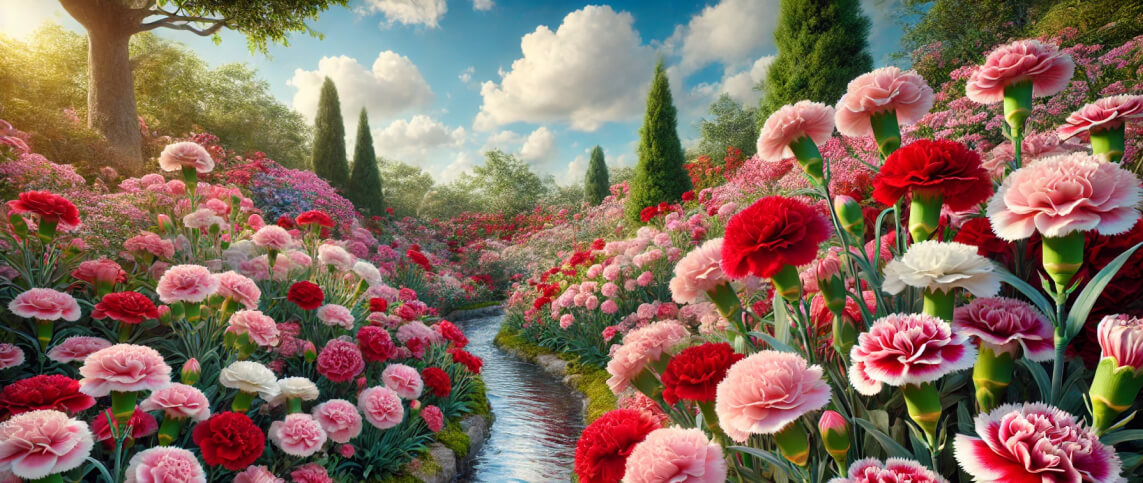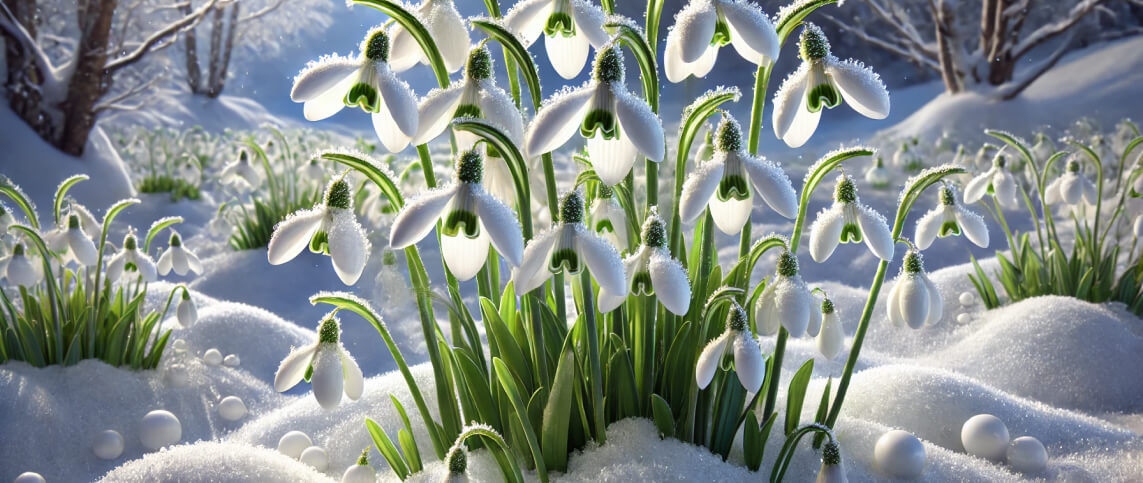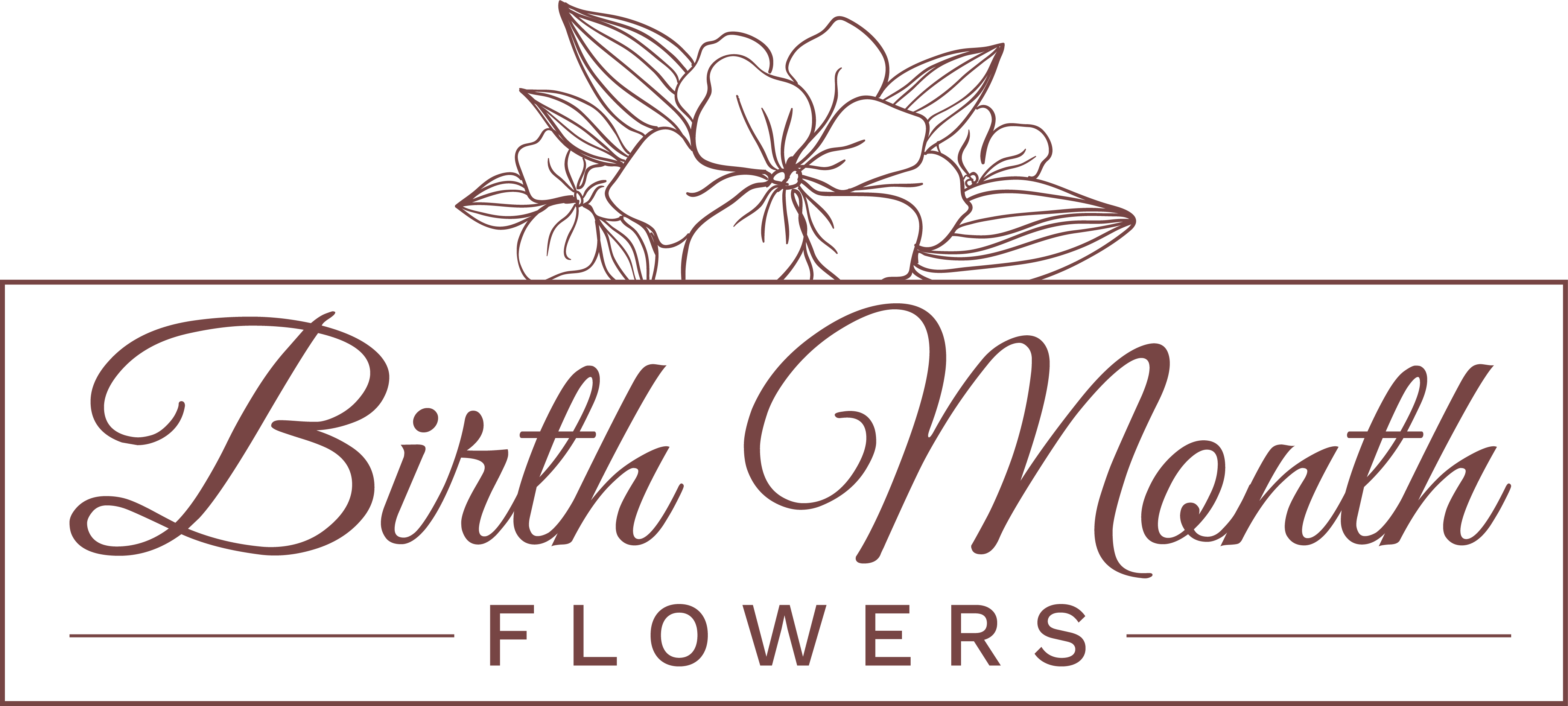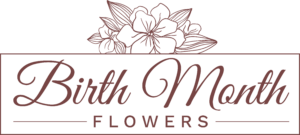January Birth Flower
If you’re born in the month of January, carnations and snowdrops are the most meaningful to you. Carnations are the most popular January birth flower due to their unique ruffled petals and range of beautiful hues, from soft pinks and reds to whites, and more! Both these stunning flowers blossom in the winter time, however, you can still enjoy them all year round, even when there is snow on the ground!
January Birth Flowers & All You Should Know About Them

January marks a new beginning. And it’s a great idea to adorn your new year with January Birth Flowers. Moreover, each of the January birth flowers have different meanings. Want to know about them? If so, keep reading! Here, we have covered everything about the symbolism and history of these birth flowers for January.
What are the January Birth Flowers?
Just like gemstones or zodiac flowers, birth flowers also have special meanings. This is why people love to delight their loved ones with birth flower gifts on birthdays, anniversaries, and other occasions. But did you know that the history of birth month flowers dates back to centuries ago. The ancient Romans that flowers bloomed in a specific month brought luck, protection and goodwill to that month. Since then, they became a part of a lot of cultural celebrations and special occasions.
Carnations – Primary Birth Flowers for January
Carnations are beautiful blooms known for their frilly petals and spicy-sweet fragrance. Apart from their ruffled look, their long stems also make them stand out among other flowers. Their versatile appearance makes them great for all sorts of floral arrangements, from bouquets to event decors and whatnot.
Did You Know?
The carnation genus (Dianthus) has over 300 species.
The genus name of carnations is Dianthus which is derived from two Greek words dios means divine and anthos means flowers. Hence, Dianthus translates to the flower of gods.
The History of Carnations
Let’s go back in time and discuss the origin of carnations. Well, the cultivation of these colorful blooms dates back to 2000 years ago. They are said to have first grown in the Mediterranean by the Greeks and Romans for medicinal use, ceremonies and art. Later, they became popular among Asians because of their visual appeal. And this is how they gradually took over the world with their beauty, fragrance and allure.
What Does Carnation Means?
Carnations come in a lot of colors and are generally associated with love and affection. During the early times, they were found in only pale pink or peach color. But as the years passed their availability grew into red, yellow, white, orange, green, purple and more. Besides, every color conveys a different meaning too. Here’s what each of them means:
| Color of Carnations | Meaning they convey |
|---|---|
| Pink | Gratitide, Affection |
| Red | Admiration |
| Deep Red | Romance, Love |
| White | Innocence, Purity, Friendship |
| Purple | Royalty, Capriciousness |
| Yellow | Disappointment, Sorrow, Rejection |
| Striped | Regret |
Because carnations are known to last longer than other flowers, they are associated with deep love. And here’s an interesting fact: pink carnations are the ideal Mother’s Day gift because they symbolize a mother’s love. After all, the legend says that pink carnations grew after Mary’s tears fell on the soil when Jesus carried the cross.
Fun Fact About Carnations!
Green carnations are one of the most iconic LGBTQ+ floral representations. The trend was popularized by the playwright Oscar Wilde who asked his friends to wear this flower during the opening night of his play.
Moreover, the Victorian era used this January birth flower in a very unique way. Those people used the striped carnations to convey refusal or to break up. In other words, giving striped carnations meant: we can’t be together.
Snowdrop – Secondary Birth Flower for January

Snowdrop (Galanthus) are the earliest garden flowers of them all to bloom. You can see them adorning the garden in the late winter or early spring. In fact, they are known as the first sign of spring. So, just like January they also represent new beginnings – making them the perfect birth flower for January. They look delicate and white but can tolerate semi-frozen soils and snowfalls.
The History of Snowdrops
This January birth month flower is loved and admired since the ancient times. It became popular in the Europe during the 17th century. In the Victorian Era, people used it art and literature to illustrate their ideals. Another notable appearance at that time is their appearance in the “Language of Flowers” book as the symbol of hope.
What Does Snowdrop Mean?
As mentioned above, snowdrops signal the arrival of spring – a new, lively season after winter. Hence, they are associated with hope and rebirth. Furthermore, their delicate white petals represent purity and innocence. And because they can withstand rough climates and soil conditions, snowdrops are considered a symbol of resilience. In some cultures, they are believed to bring good luck and protect against evil spirits.
Did You Know?
According to the folklore, snowdrops were bad luck if brought indoors. It is because of their white color and association with the cemetery.
Here’s a little breakdown of the meaning that snowdrops convey as the Jan Birth Flower:
- New beginnings
- Resilience
- Hope
- Purity
- Innocence
Given the symbolism of these blooms, these January flowers are perfect to celebrate the beginning of spring. And did you know that they have been cherished ornamental flowers for centuries – all because of their association with renewal? They are a great way to keep yourself motivated, optimistic and hopeful.
Fun Fact About Snowdrops!
Snowdrops have a dedicated following of people – more like a cult – known as the galanthophiles. They love to collect and grow different types and varieties of snowdrops.
How January Birth Flowers Define Your Personality?
Being a January baby gives you qualities that people born in others may not possess – at least, this is what the birth flowers for January symbolize. But really, what personality traits these flowers represent? Well, as the carnations convey, you can expect January borns to be warm and loyal. But hey, don’t expect them to be sweet as sugar!
After all, carnations are also associated with rebelliousness. This means that the friendly nature and warmth may come with some tantrums. On the other hand, according to snowdrops, people born in January are very hopeful and always look at the brighter side of life. Plus, they are resilient and gracefully handle the lemons life gives them.
January Birth Flowers & Personality Traits
| Carnations | Snowdrops |
|---|---|
| Warm | Optimistic |
| Loyalty | Resilient |
| Rebelious | Graceful |
Elevate Your Celebrations with January Birth Flowers!
Are you born in January? Or is your special one’s birthday this month? Or maybe you want to celebrate the New Year in a meaningful way? Whatever the reason, the answer is Carnations and Snowdrops. Get your special someone a bouquet of January birth month flowers to tell them how deeply you know about them. Apart from this, you can decorate your space with these blooms to celebrate a fresh start of anything: a relationship, a business venture, then some!




